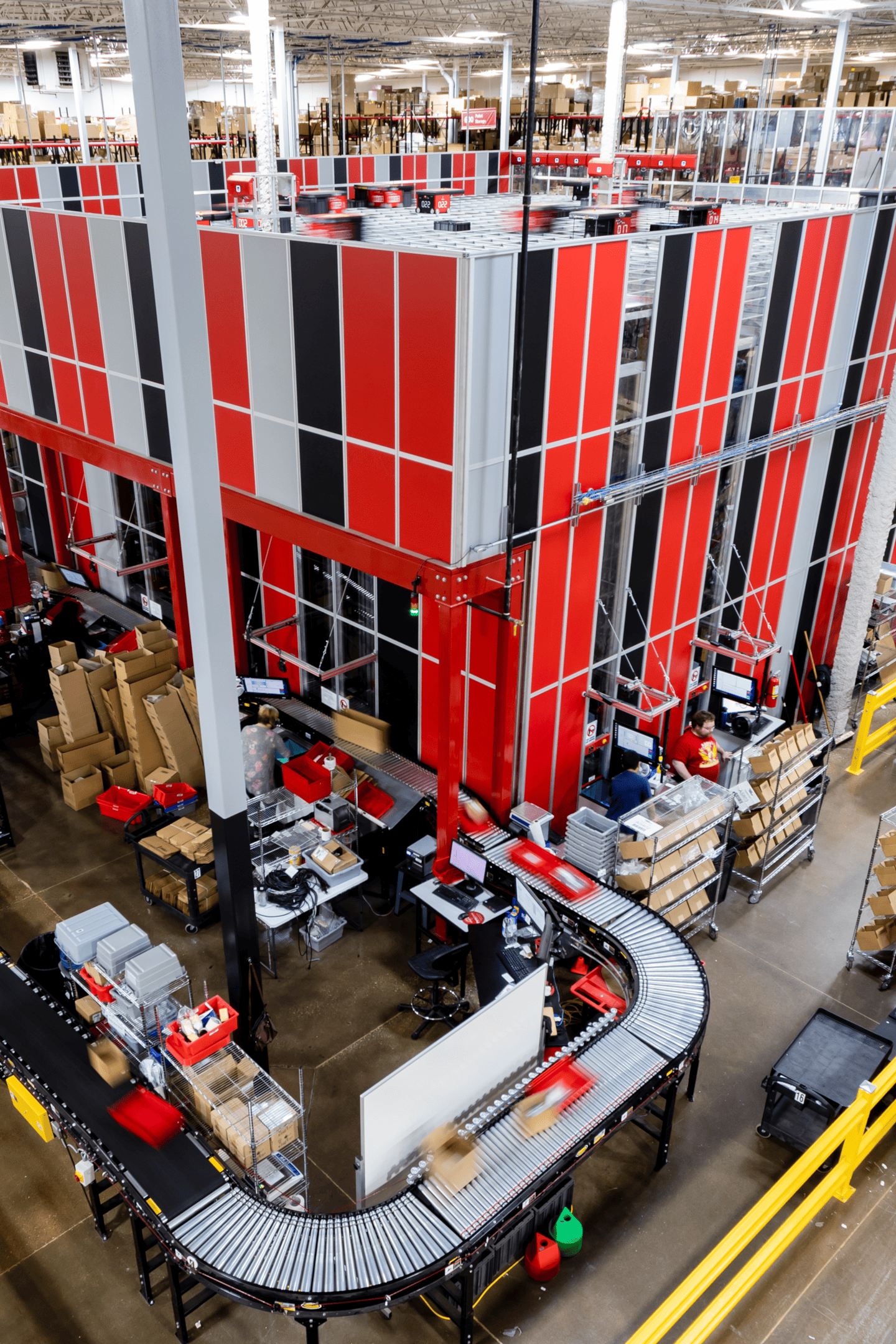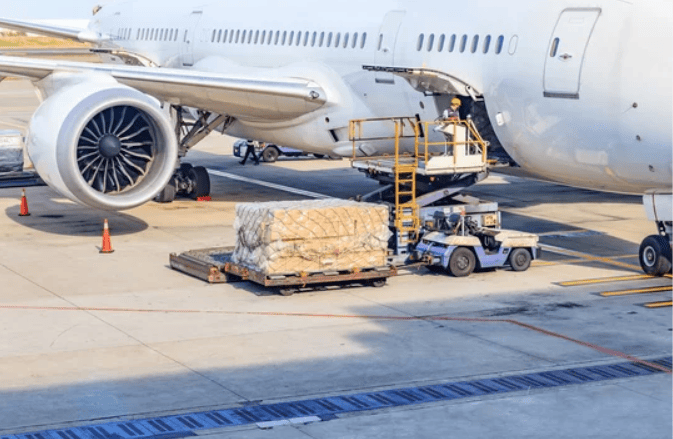Your Top 11 Questions about Expedited Freight Services Answered ASAP

Whether your organization uses expedited freight shipping every day or occasionally, it pays to understand how to use these services as effectively as possible.
“Shippers have to weigh the cost of expediting against the downstream impact of shipments arriving later,” says Kevin Schultz, president and co-founder of 357 Company, a logistics provider.
If a company’s ability to operate or to meet clients’ needs is in jeopardy, expedited freight shipping can pay off.
Here’s an example. When a piece of equipment essential to a restaurant’s operation—say, a fryer or freezer—isn’t working, most restaurants need to obtain any repair parts and get the equipment back running as quickly as possible. To that end, Parts Town, a provider of restaurant equipment parts, ships all orders it receives by 9 p.m. the next day. In some cases, it ships orders arriving by midnight the next day.
“We’re a mission-critical parts business for food service equipment,” says Audreyann Snow, vice president, operations and logistics.
Most orders are expedited. “Customers decide if they want next-day, second-day, or ground service and we make sure it happens,” Snow says. To accomplish this, Parts Town has taken multiple steps. Among them, it intentionally located near its carrier partner, and it has invested in a robust goods-to-person system and a conveyor solution nearly 2 miles long, so employees can quickly process orders.

Parts Town’s conveyor solution lets employees quickly process orders.
Most organizations need to work within budgets, and make sure they use expedited freight services astutely. The answers to these 11 questions about expedited freight services can help.
1. When Should Shippers Consider Using Expedited Freight Services?
To Address Supply Chain Glitches
Historically, many expedited freight shipments were a result of forecasting mistakes or supply chain glitches that left a company with less inventory than it needed. “Companies would spend more on transportation because they didn’t want to lose customers,” says Geoff Milsom, partner and co-founder of Forerunners Consulting.
To Maintain Product Value or Integrity
While some expedited shipments still result from a hiccup in forecasting or operations, several other reasons can come into play. Companies that work with perishable products, whether literal or practical, often use expedited services to ensure products arrive while they still have value. “Christmas trees arriving after December 24 are useless,” Milsom notes.

Using expedited freight services for seasonal products such as Christmas trees ensures the products arrive at retail locations while they have value.
To Prevent Equipment Downtime
In many manufacturing or assembly plants, unplanned equipment downtime is costly; a recent survey by ABB put the average cost at $125,000 per hour. Expediting the repair components and getting the equipment back in operation can pay off.
To Keep High-Value Cargo Secure
High-end products such as jewelry tend to benefit from expedited shipping, which can offer more end-to-end package protection, says Deana Thornton, director of product marketing with Shopify. Merchants in the pharmaceutical, nutraceutical, or perishables industries also prioritize expedited shipping to ensure faster delivery of their products.

Expedited shipping services can provide high-value products such as jewelry with end-to-end package protection.
To Protect Supplier Relationships
It’s not only business-to-consumer shippers who are turning to expedited shipping. “Within the business-to-business sector, expedited–or at least timely–delivery is critical,” Thornton says. “Business owners are at higher risk of damaging and potentially losing supplier relationships if items do not arrive based on set delivery agreements.”
2. How Can Shippers Use Expedited Freight Services Strategically?
Free Up Funds Tied Up in Inventory
In some cases, companies can use expedited freight shipping proactively, as part of a supply chain strategy. For instance, some retailers use expedited freight shipping to reduce the funds tied up in inventory.
In industries where a healthy percentage of the product line each year is new, the potential for disruption tends to be higher, says Ramesh Murthy, executive vice president and chief supply chain officer with Bob’s Discount Furniture.
When Expediting Now Saves the Need for Expediting Later
Often, there’s a “tipping point,” at which it’s clear that another delay will mean even more costly expediting later.
For instance, if a launch date is four weeks away and a supplier is delayed by two weeks, it’s likely that one more lost week—which wouldn’t be unheard of—would make it even more difficult to catch up. The company may decide to pre-emptively expedite some shipments.
Supporting a Product Launch that Makes a Marketing Statement
When Murthy was working with a previous employer, management decided to launch an entire line in a single day. Rather than purchase more advertising, they reasoned it would be a more productive use of funds to expedite the products, so everything would arrive in time for the launch.
By having all products arrive at the same time, “the statement made at retail would blow everyone away,” Murthy says.
Ascertain How Expedited Shipping Impacts the Margin
The ability to do the math when deciding whether to expedite at scale is critical, Murthy says. His team was able to leverage solid decision support tools that helped everyone understand how expediting the shipments would impact the margin.
Rush Order Tees—as its name suggests—often expedites high-profile orders or shipments to first-time customers with large orders. One reason is to motivate them to continue purchasing with the company, says Mike Nemeroff, chief executive officer and co-founder.

To incentivize customers, Rush Order Tees expedites high-profile orders or shipments to first-time customers with large orders.
3. What Steps Can Shippers Take to Minimize Unnecessary Use of Expedited Freight Shipping?
Often, the transportation department is told to make deliveries happen, even if steps–or missteps– upstream mean they can accomplish this only by using expedited freight services. Better forecasting as well as visibility into inventory levels and incoming inventory can reduce the need for expediting.
It also helps to make sure the appropriate party internally is accountable for the costs of expediting, as this may prompt them to watch their use of it. “Everyone wants to move things fast until they know what it costs,” Milsom says.
4. What Are the Primary Types of Expedited Freight Shipping?
The names and types of expedited freight shipping services can vary among providers. Rick Loerke, director of customer solutions with Valley Companies, a provider of supply chain logistics solutions, categorizes them into several groups.
Expedited Air Freight Services
One type is expediting in cargo aircraft; typically, this is for deliveries that can arrive within one to three days. Expedited shipments can also go on commercial flights, if the shipper is a TSA “known shipper.” This can be quicker than using cargo aircraft, given the number of passenger flights each day.

Shipments can be expedited via air, either through cargo aircraft or on commercial flights.
Expedited Ground Freight Services
Expedited ground freight typically moves a day or so faster than non-expedited ground freight.
Express Shipping Services
Express shipping is even faster than expedited, and often is used for a next-day delivery window, says Melissa Nick, chief supply chain officer with ShipBob. However, given its cost, she recommends using it sparingly.
5. What Types of Companies Provide Expedited Shipping Services?
In the past, mostly large national carriers offered expedited options. As customer expectations have changed, more companies now offer expedited shipping services. Shippers often can leverage small regional or local carriers to provide this service.
Many regional carriers provide expedited ground services that can offer savings when compared to many expedited air services, says Adam Langston, chief commercial officer with Passport Shipping. Many can offer same-day service.
To access expedited freight services, shippers often can turn to freight forwarders. Many forwarders operate networks of service providers in multiple markets.
6. What Factors Affect the Cost of Expedited Freight Shipments?
Expedited freight shipments often move by air for some portion of their trips. Because space is limited, dimensional weight is a key factor. (Dimensional weight reflects the amount of physical space a package takes up in relation to its actual weight.) The airlines charge according to the greater of the weight you’re shipping or the space a package takes up.
Not surprisingly, the delivery deadline is also a significant factor. Typically, the tighter the deadline, the higher the cost.
Similarly, the distance between a shipment’s starting point and its destination impacts cost. The farther the shipment has to go, the more it generally costs.
7. What Challenges Should Shippers Expect When Accessing the Market for Expedited Freight Services?
While the regional carrier market is growing, shippers may face capacity constraints, says R.J. Romano, supply chain advisory practice leader with consulting firm BDO. Waiting to place orders until the last minute may mean getting “left stranded,” he adds.
Some couriers rely on contract drivers and may lack visibility to them once they’re on the road. “It can be alarming for a shipment with urgency,” Romano notes.
8. How Does Expedited Freight Shipping Change if the Shipment Is Crossing Borders?
Cross-border expedited shipments often involve a large number of parties, says Jose Fernandez, vice president and country manager for Mexico with BlueGrace Logistics.
For example, a package moving from Mexico to the United States might involve the shipper in Mexico, a logistics provider, a carrier, a customs broker, potentially other border service providers, as well as the carrier on the U.S. side, and sometimes a team from the customer’s company. All parties need to work together.
“On a standard shipment, communication has to be good,” Fernandez says. “On expedited shipments, it has to be close to perfect.”
It’s also critical to tamp down even the potential for delay. For instance, when the product is ready to go, a truck needs to be there, regardless of the time or day. The customs broker should have entry and customs clearance documents accurate, complete, and ready to go, so the load can transfer smoothly. “It’s a 24/7 operation,” Fernandez says.
Fernandez typically arranges meetings with all parties before working together. Then, when the first load is ready to go, everyone understands the steps necessary for a smooth shipment.
9. How Can Shippers Keep Expedited Freight Shipping Costs in Line?
From manufacturing to distribution, communication and planning are critical. This way, everyone can see ahead and act proactively. “There are a lot of levers that can be pulled upstream, so you’re not caught in situations where you have to expedite,” Romano says.
Notify Carriers in Advance
Shippers who can notify their carriers of their plans to expedite one or two days ahead of time often can save money.
In some cases, adjusting how you expedite can rein in costs. The supply chain challenges of the recent past sometimes meant CKE Restaurant Holdings, Inc. might have 20 restaurants in a metro area that were short a product, says John Brewer director of distribution and logistics.
Pinpoint Central Locations
He and his colleagues would identify a handful of centrally located restaurants and then expedite the product to these sites. This helped both the expense and with capacity, as it was easier to find three or four trucks, rather than 20. From these locations, the CKE team would move the items to the remaining restaurants.
Brewer also obtains quotes from several expedited freight delivery services. “You save a little, and over time, it adds up,” he says.
10. How Can Shippers Minimize the Risk of Mistakes or Delays on Expedited Freight Deliveries?
Communication is key. “If there is a deadline to meet, we must have this information,” says Joe Giranda, director of sales and marketing with CFR Classic, a global provider of vehicle shipping solutions. Having this information can eliminate some of the back-and-forth that can otherwise occur, and helps CFR advise on the best routing solution.
Avoid shopping on price alone. Unrealistically inexpensive options can give rise to problems later on. For instance, when a price quote seems too good to be true, it’s possible the provider doesn’t actually have a driver lined up. If the provider can’t get one in time, the shipment likely will face delays.
Nemeroff asks customers to verify the address to which the rush orders are going. Unlike standard shipments, where customers might have time to edit their address a day or so after placing an order, rush orders have a much shorter timeline.
“It’s more complicated to try changing an address after the order has been dispatched to a private courier office,” he adds.
11. What are the Key Technologies and Attributes to Consider when Evaluating Expedited Freight Service Providers?
GPS, tracking systems, and other technologies that enable communication allow everyone involved to have continual information on the location of a load.
Over time, continued automation and algorithms will drive efficiencies, says Mark Derks, chief marketing officer for BlueGrace. Artificial intelligence is adept at identifying problems and gaps in expedited shipments, freeing employees from having to sift through volumes of information, he adds.
APIs, or application programming interfaces, are becoming standard, especially for high-volume shippers, as they allow the transportation network to connect to a shipper’s transportation management system (TMS), ecommerce site, or in some cases, point-of-sale system.
“APIs are a key technology used today to speed processes, and ensure data is sent quickly, efficiently, and correctly,” says Shaun Savage, chief executive officer and founder of GoShare, which provides expedited last-mile shipping.
Mobile apps can make expedited shipping a better experience for everyone involved. “Communication, navigation, tracking, proof of delivery, bill of lading—all can be done in a mobile app,” Savage adds.

Mobile apps can support expedited shipping services, providing a better experience for everyone involved.
Another critical step is confirming the provider and its network can handle the complexities of expediting. “This is a serious business with lots at stake,” Schultz says. “Expediting is a stress test for logistics companies.”
